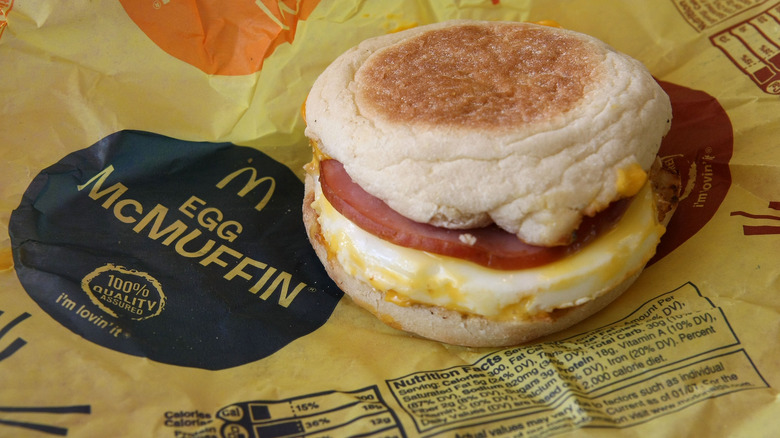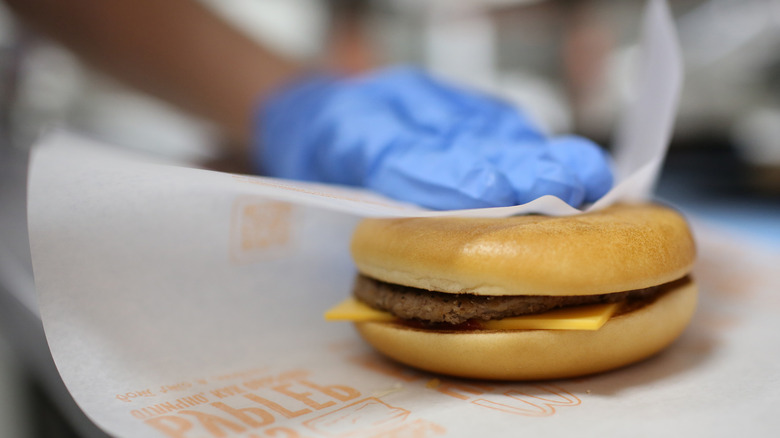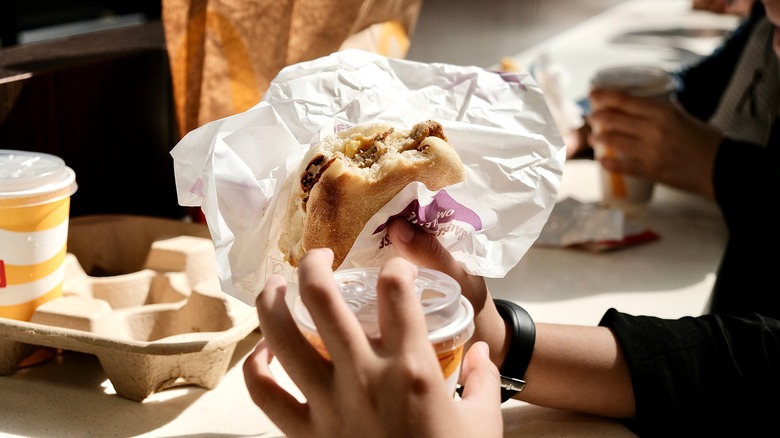Is It Safe To Microwave McDonald's Wrappers?
We've all been there: you bought too much at McDonald's, and now you have to save some for later. The good news is that McDonald's meals reheat remarkably well, owing partly to the fact that the food lasts an unusually long time relative to its fast food competitors. You can reheat McNuggets in the air fryer (the king of all tools for reheating fried foods), but burgers are even easier: you just pop them in the microwave for about 35 seconds. However, you might be asking the question: Are McDonald's wrappers just as easily microwaveable?
While McDonald's wrappers aren't a fire hazard like metal wrappers, there's a far more insidious health risk at play: polyfluoroalkyl substances (also known as PFAS) leeching into your food. This is something you definitely do not want, and if you reheat your burger in the wrapper itself, it's exactly what you might be getting.
What are polyfluoroalkyl substances?
A lot of people assume that when a chemical has a ton of syllables in its name, it's inherently dangerous. That's not necessarily always true — but it is definitely in the case with PFAS. These are also known as "forever chemicals," referring to substances that don't break down easily and stay in the environment (and the human body) for many years — in some cases, requiring over 1,000 years to break down. According to the National Institute of Health, PFAS have been linked to symptoms as disparate as fertility issues, cancer risk, altered metabolism, and immune system suppression.
PFAS have some useful properties; they've helped create products like non-stick pans, stain-resistant fabrics, and cosmetics since the 1940s. They're used in McDonald's wrappers particularly for their grease-resistant properties, which keeps the oil in the meal from seeping through the wrapper itself. The problem comes when you microwave these wrappers.
Microwaving a McDonald's wrapper vaporizes toxic chemicals
The specific chemicals at play here are perfluorocarbons, also known as PFCs, a subcategory of PFAS. McDonald's wrappers are made of paper, which theoretically makes them microwave-safe — but while a metallic Wendy's wrapper will spark and catch fire if you microwave it, a McDonald's wrapper will create a stealthier issue. When left in a wrapper for a long period of time, the PFCs also can leech into the food, so you should transfer your food to other containers for storage. When you microwave a McDonald's wrapper, the PFCs vaporize and leech deep into the food itself.
You can always check the wrapper itself to see if it's labeled as PFC-free before deciding to microwave it or not. But for health reasons, it's best to avoid reheating a McDonald's meal in its wrapper if you can. You can transfer your food onto a microwave-safe plate, or even onto a paper towel, which will help absorb extra moisture from the burger and keep the buns dry.


